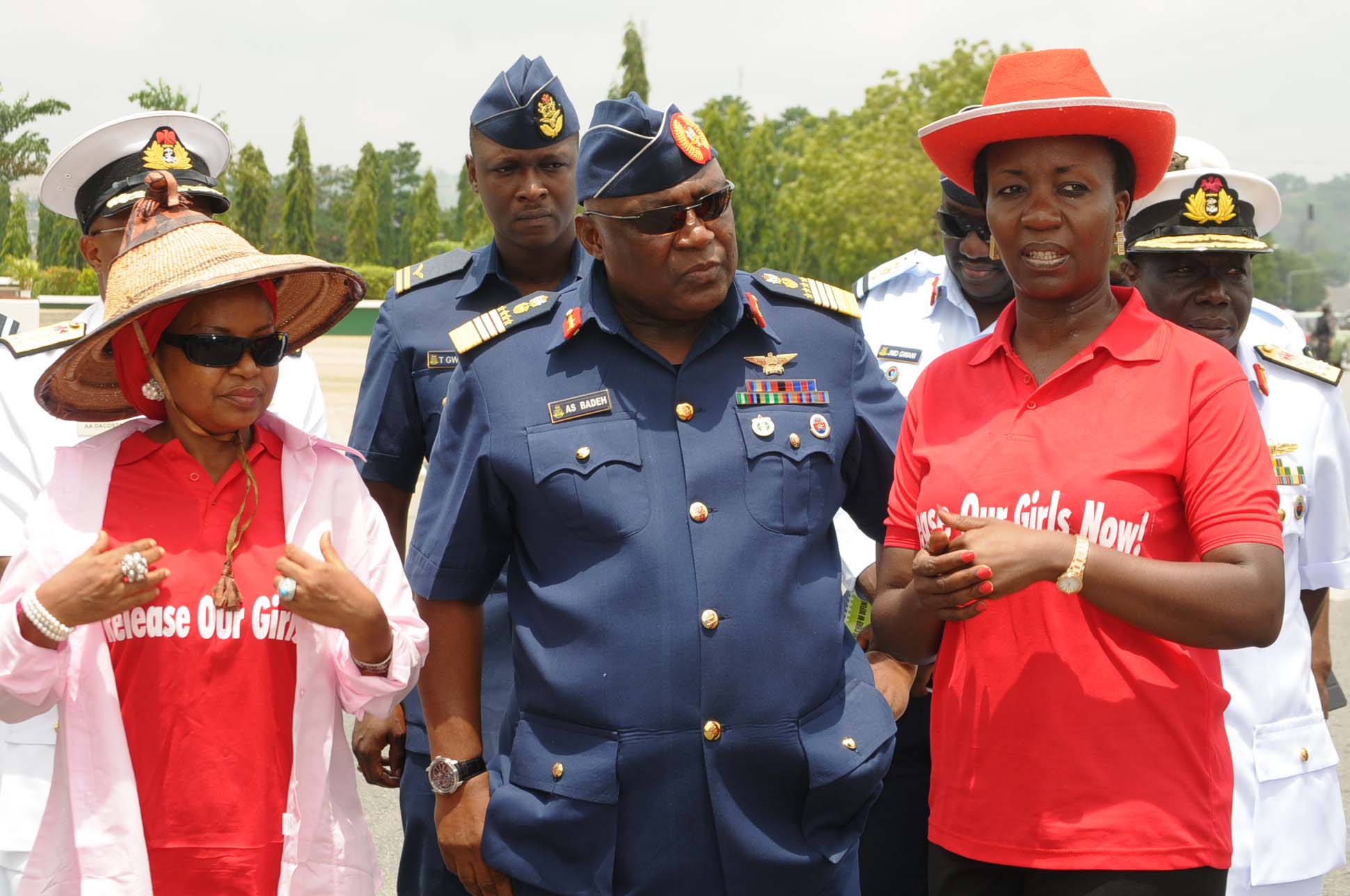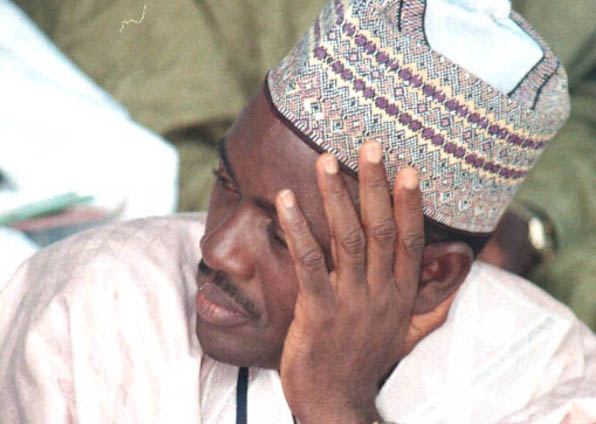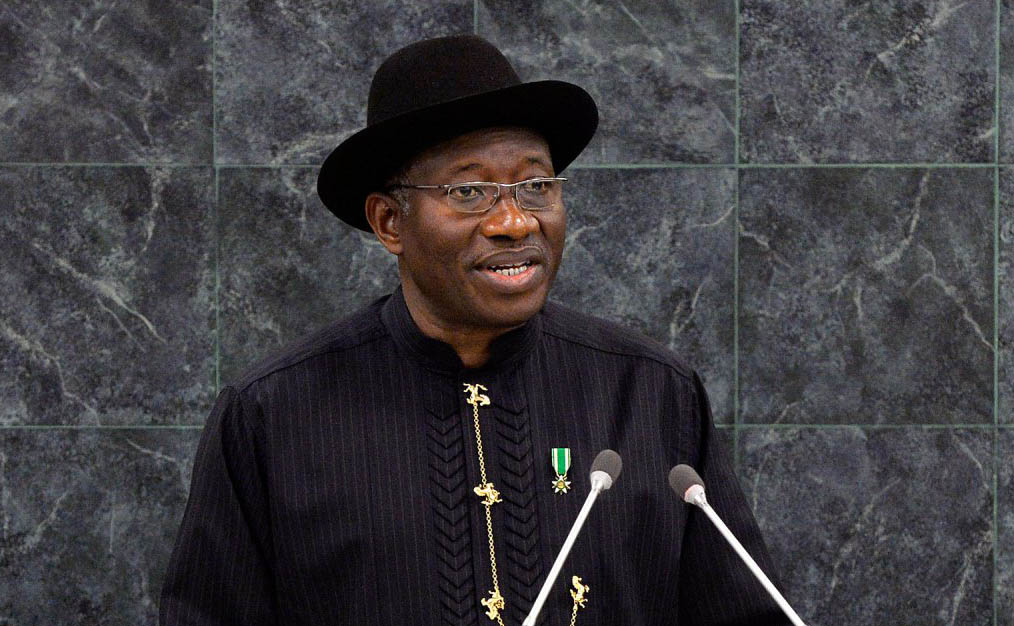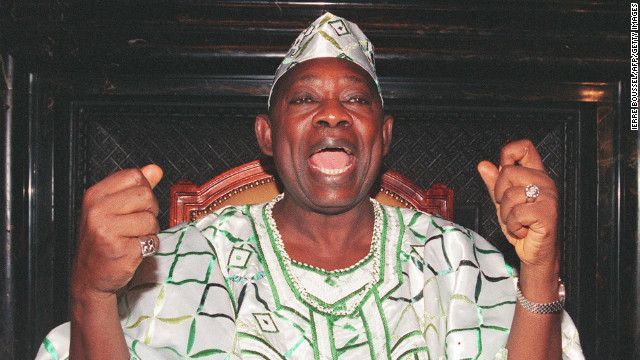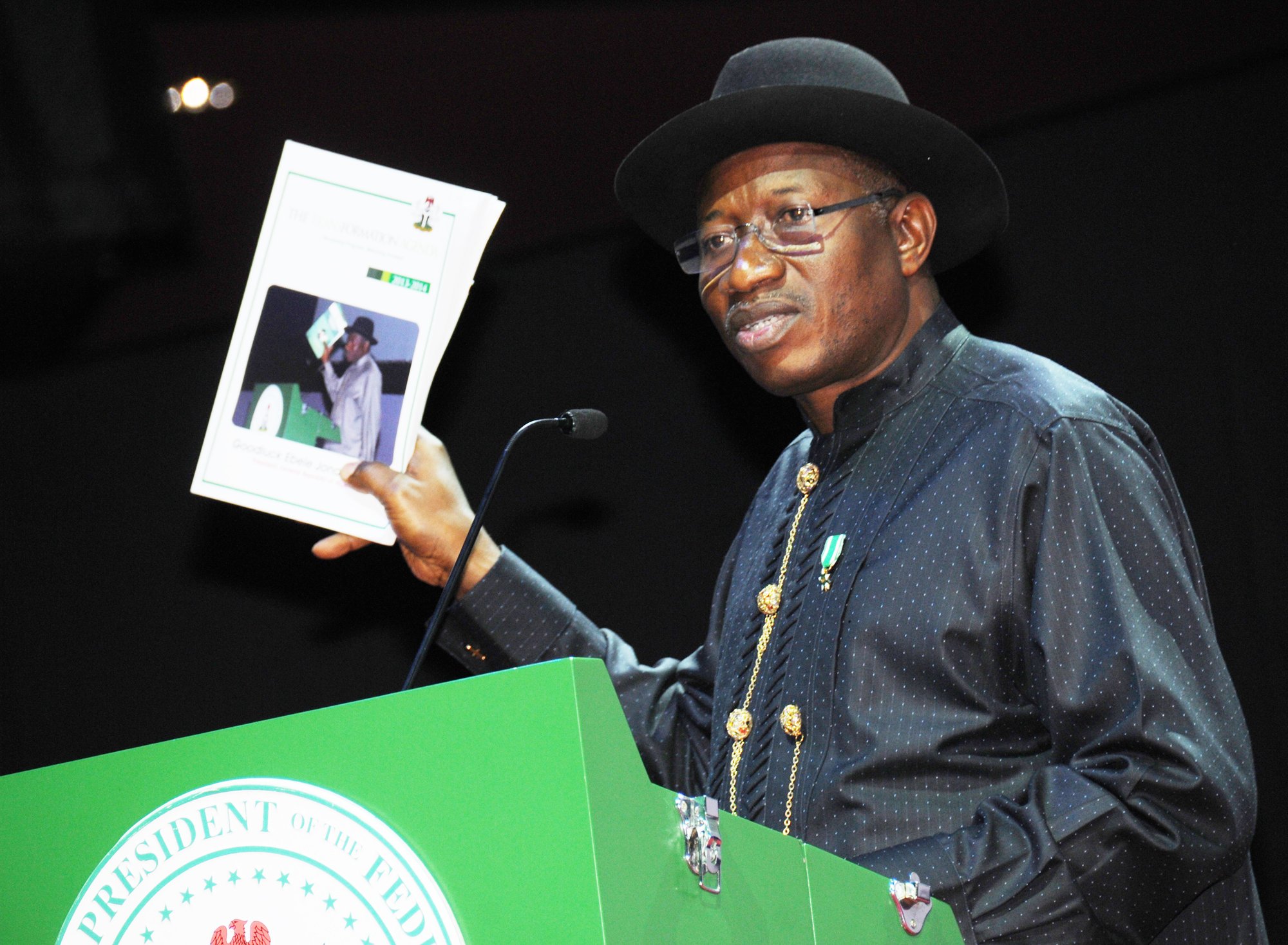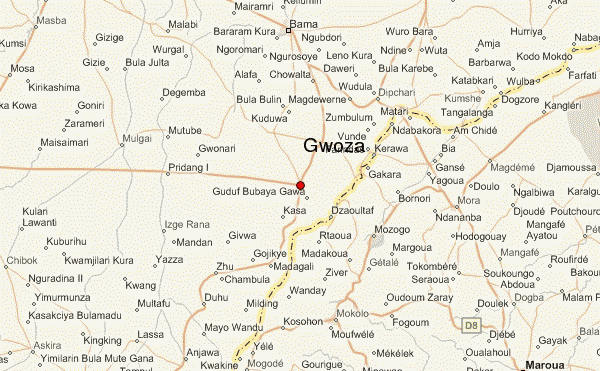Member, National Conference (north-west), Dr Fati Ibrahim; chief of defence staff, Air Chief Marshal Alex Barde; and convener, United Coalition Against Terrorism, Rep. Beni Lar, in Abuja on Monday
The stunning revelation by chief of defence staff, Air Chief Marshall Alex Badeh, on Monday that the military knows where the kidnapped schoolgirls are but will not use force to rescue them has narrowed the chances before the government to almost zero. These are the choices before us ─ but they are thinning out by the day.
Prisoner swap. Boko Haram leader Abubakar Shekau had, in a video released on May 12, owned up to kidnapping hundreds of girls from Government Girls Secondary School, Chibok, Borno State. In his usual tragicomical style, he taunted the federal authorities and threatened to sell the girls into slavery. He said: “These girls you’ve occupied yourselves with… we’ve liberated them. They are now Muslims. It is now four to five years since you arrested our brothers and they are still in your prisons. You’ve done so many things to them. We’ll treat the girls well as Islam allows. We’ll never release them until our brothers are released.”
In no uncertain words, Shekau was asking for a prisoner swap deal. Under the deal, the girls will be freed while some Boko Haram members in detention will also be released by the government. Although President Goodluck Jonathan was quoted as saying there was not going to be any swap deal by the British undersecretary for Africa and the commonwealth, Mark Simmonds, it would appear government actually made underground moves to do a deal through an intermediary. But Jonathan reportedly pulled the plug at the last minute. It is still unclear why the government is opposed to a swap deal, but the conventional wisdom is that it will portray Jonathan as weak and it will be a victory for the terrorists. Also, some think victims of Boko Haram attacks will not have been done justice if the culprits are freed.
Conclusion: Prisoner swap? No deal.
Advertisement
Negotiation. This is very close to a prisoner swap deal, but it is a little bit different. A negotiation can include releasing the prisoners but it can also mean sitting down with the insurgents and agreeing to a ceasefire. This seems to be more complicated than the swap option because what exactly will the government be negotiating with Boko Haram? The group’s stated aim is to impose Islamic rule on Nigeria. In other words, they want to overthrow the federal government, change the laws of the land and replace them with Sharia ─ like the Taliban did in Afghanistan. If there is going to be a negotiation, what will the government be conceding to the militants? Some states? Some ministerial and ambassadorial slots? Never mind.
Even though President Jonathan has openly said he was open to dialogue with the militants if only he could put a face to the group as the case was in the Niger Delta, insiders in his government are opposed to any such move, insisting that the Niger Delta militants never attacked civilian targets and had a “reasonable” cause of action. Senate President David Mark, a retired brigadier-general, said Nigeria will not negotiate “with terrorists under any circumstance because you don’t negotiate with criminals which Boko Haram insurgents are. We are doing everything possible to bring the girls back safe and sound for their parents without any negotiation with Boko Haram as every effort towards that which cannot be disclosed in the public is being made to rescue the girls”. Nigerians are still waiting.
Conclusion: Negotiation? No deal.
Advertisement
Use of force. No prisoner swap, no negotiation. That leaves us with virtually only one option: use of force. In which case, the security forces, helped by US, UK and Israel, among others, will storm the camp of the militants, take out their defences and rescue 276 girls from the grip of Shekau and co. This is the stuff movies are made of. In reality, Boko Haram has the longer end of the stick in this instance. If it is easy for the security agencies to use force to end the insurgency, we will not be here today discussing Boko Haram. The military would have taken them out long ago. Now that they have our precious jewels in their grip, will it be easier to use force against them? Not so, says the chief of defence staff, Badeh, who, for the records, likes to talk a big game. He has since realised that use of force could do more harm than good to the girls.
Listen to him: “We want our girls back, I can tell you that our military can and will do it, but where they are held, can we go there with force? Nobody should say Nigerian military does not know what it is doing; we can’t kill our girls in the name of trying to get them back. So we are working, the president has empowered us to do the work, anybody castigating the military, definitely there is something wrong with him. The good news for the parents of the girls is that we know where they are, but we cannot tell you. We cannot come and tell you the military secret, just leave us alone, we are working to get the girls back.” Now the clincher: “If we are fighting an external war, they would have been begging us to withdraw.” He was the same man who promised to end Boko Haram in a matter of weeks when he was appointed CDS in January 2014. He later said he was only motivating his soldiers. Nice one.
Conclusion: Use of force? No deal.
What else now? No prisoner swap, no negotiation, no use of force. Are there still options left for us to get these girls out of captivity?
Advertisement
Bluffing. The government can continue to bluff hoping that Boko Haram will blink first. After all, the militants willingly offered a deal in the first instance. Maybe they will cave in under international pressure, now that the whole world has come to Nigeria’s assistance. The only problem is that Boko Haram hardly bluffs. They are mean.
Fatigue. We can also hope that Boko Haram will enter a phase of fatigue in their war against Nigeria. A time comes in insurgency when the militants realise that they cannot win and they cannot make any progress. They get tired of killing and being killed. They are war-weary. Maybe they will just wake up one day and set the girls free unconditionally. Fat chance.
Goodbye. Government can decide not to do anything at all and let the girls just go into oblivion. The most heartbreaking option, maybe even worse than the death of those girls, is that we may never see them again. If they are dead, we come to closure. If they remain captives, the pain of knowing that your daughter is somewhere and you will never see her again could be more crushing ─ a feeling of “so near, yet so far”. Joseph Kony’s Lord’s Resistance Army in Uganda has been taking girls captive for decades and nobody knows their whereabouts.
Advertisement
